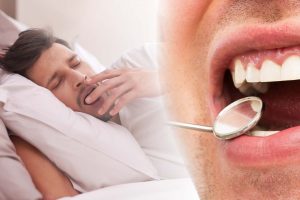In this groundbreaking blog, we invite you to delve into the fascinating world where genes and dentistry intertwine. Discover the remarkable role that your unique genetic makeup plays in determining your dental destiny. From the strength of your tooth enamel to your susceptibility to certain oral conditions, we will unravel the mysteries behind your smile.
Genetic factors of dental care refer to the inherited traits and variations in a person’s genes that can influence their susceptibility to dental conditions and oral health outcomes. These genetic factors can play a role in determining an individual’s risk for developing certain dental issues, such as tooth decay, gum disease, malocclusion (misalignment of teeth), or enamel defects.
Genetic Factors Lead to Different Dental Diseases
Genetic factors play a significant role in the development of various dental diseases. These genetic factors can influence an individual’s susceptibility to specific oral conditions and diseases, including:
Periodontal Disease
Genetic variations can affect the immune response and inflammatory pathways in the body, which may increase the risk of periodontal disease. People with certain genetic factors may be more prone to gum inflammation and bone loss, leading to periodontal disease.
Tooth Decay
Genetic variations can impact the structure and mineral content of tooth enamel, making some individuals more susceptible to tooth decay. Weaker enamel due to genetic factors can create an environment that is more conducive to the growth of cavity-causing bacteria.
Malocclusion
Genetic factors can contribute to the development of malocclusion, which refers to misalignment or improper positioning of the teeth. Inherited traits, such as jaw size, tooth size, and facial structure, can influence the way teeth align and fit together.
Oral Cancer
Certain genetic variations can increase the risk of developing oral cancer. These variations may affect the body’s ability to repair damaged DNA or regulate cell growth, increasing the likelihood of cancerous changes in the oral tissues.
Salivary Gland Disorders
Genetic factors can also play a role in salivary gland disorders, affecting the production, composition, and flow of saliva. Saliva plays a vital role in maintaining oral health, and disruptions in its function can contribute to various oral health issues.
Managing the Impact of Genetic Factors
While genetic factors can influence an individual’s susceptibility to certain dental conditions, it’s important to note that they cannot be directly cured or altered. However, there are several preventive measures and treatments available to manage and minimize the impact of genetic factors on dental health. Here are some approaches:
Oral Hygiene
Maintaining good oral hygiene practices, such as brushing your teeth at least twice a day and flossing daily, is crucial for preventing dental issues regardless of genetic factors. Regular and proper oral care helps remove plaque and bacteria, reducing the risk of tooth decay and gum disease.
Professional Dental Care
Regular dental check-ups and professional cleanings are essential for everyone, including those with genetic predispositions. Dentists can monitor your oral health, detect early signs of dental problems, and provide necessary treatments and interventions to prevent or manage dental conditions effectively.
Customized Treatment Plans
Dentists can develop personalized treatment plans based on an individual’s genetic predispositions. By understanding the specific risks associated with your genetic makeup, your dentist can tailor preventive measures, recommend appropriate treatments, and closely monitor any potential dental issues.
Lifestyle Modifications
Adopting a healthy lifestyle can help minimize the impact of genetic factors on dental health. Avoiding tobacco products, limiting sugary and acidic foods and beverages, and maintaining a balanced diet rich in nutrients that support dental health can make a significant difference.
Orthodontic Treatment
In cases where genetic factors contribute to malocclusion or misalignment of the teeth, orthodontic treatment, such as braces or clear aligners, can help correct the issue and improve both oral health and aesthetics.
Genetic Counseling
For individuals with a strong family history of certain dental conditions, genetic counseling may be beneficial. Genetic counselors can provide information and guidance on genetic testing, inheritance patterns, and potential risks, helping individuals make informed decisions about their dental care.
But you fear not! Our exploration doesn’t stop at unraveling genetic predispositions. We will also delve into the exciting world of genetic research, uncovering the latest breakthroughs and advancements that hold promise for personalized dental care. From tailored treatment plans to preventive strategies designed specifically for your genetic profile, the future of dentistry is brimming with possibilities.
So, fasten your seatbelts and prepare to embark on a captivating journey through the genetic landscape of dental care. Get ready to unlock the secrets of your smile, gain insights into your oral health predispositions, and empower yourself with the knowledge to make informed decisions for a lifetime of exceptional dental well-being.






